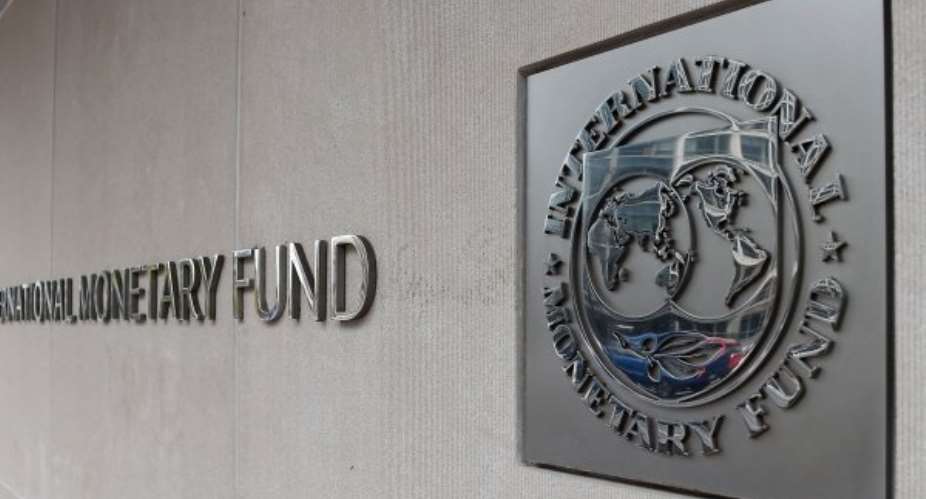Dr Priscilla Twumasi Baffour, Senior Lecturer at the Department of Economics, University of Ghana (UG), has cautioned against the politicisation of the International Monetary Fund (IMF) bailout programme.
The programme usually provides financial assistance to countries that agree to implement a series of economic policy reforms to revive and maintain a sustainable economic growth rate in the long term.
Ghana last went to the IMF in 2015 for a bailout programme, which ended in 2019.
The Minority in Parliament has raised concerns over the country's current economic health and asked the Government to return to IMF.
Mr Cassiel Ato Forson, a Ranking Member on the Finance Committee and former Deputy Minister of Finance, had explained that the high unemployment, coupled with rising inflation, had crippled the economy, therefore, the need to go to the IMF.
The Government has also insisted that the economy had seen growth despite the devastating impact of the COVID-19, adding that the handlers of the economy were capable of recovering, stabilising and transforming the economy.
Dr Baffour during a panel discussion in Accra on Tuesday, called for an end to the politicisation of going to the IMF for a bailout programme.
The discussion, which formed part of the ongoing three-day University of Ghana Annual New Year School and Conference was on the topic: “Socioeconomic impact of COVID-19 on Ghana's economy: Challenges and prospects.”
She said, “I know there's been a lot of politics that has gone on with the running back to your mother for safety…but as a developing country based on the trajectory and our sources of development, we don't have that kind of resilience that developed countries have.
“So, if a policy option exists that you can always resort to, why not? But it so happens that we have politicised that aspect so much that it becomes quite difficult for policymakers to use that window.”
“At the moment, with an economy that's on track, we do not significantly anticipate the country going to the IMF. But indeed, if push comes to shove and we have to go to the IMF for a bailout, [so be it].”
During the same discussion, Mr John Ampontuah Kumah, Deputy Minister for Finance, re-echoed the Government's stance of not returning to the programme, which saw Ghana going to the IMF in 2015 for a $918 million loan to help stabilise the economy.
“The clear position of Government is that we are not going for an IMF programme. “We're competent to manage our economy and we trust our ability to weave out of this difficult time,” he said.
“The US, which we all cite as the best economy in the world had to create $1.9 trillion to shore up their economy and be able to survive. So, it's not only a Ghana thing; it's difficult everywhere.
“Truly, if we were not having the money [in the economy] we wouldn't have still been able to have our children in school even in this difficult COVID period,” Mr Boahen stated.
GNA





 We’ll no longer tolerate your empty, unwarranted attacks – TUC blasts Prof Adei
We’ll no longer tolerate your empty, unwarranted attacks – TUC blasts Prof Adei
 Bawumia donates GHc200,000 to support Madina fire victims
Bawumia donates GHc200,000 to support Madina fire victims
 IMF to disburse US$360million third tranche to Ghana without creditors MoU
IMF to disburse US$360million third tranche to Ghana without creditors MoU
 Truck owner share insights into train collision incident
Truck owner share insights into train collision incident
 Paramount chief of Bassare Traditional Area passes on
Paramount chief of Bassare Traditional Area passes on
 Two teachers in court over alleged illegal possession of BECE papers
Two teachers in court over alleged illegal possession of BECE papers
 Sunyani: Victim allegedly shot by traditional warriors appeals for justice
Sunyani: Victim allegedly shot by traditional warriors appeals for justice
 Mahama vows to scrap teacher licensure exams, review Free SHS policy
Mahama vows to scrap teacher licensure exams, review Free SHS policy
 Government will replace burnt Madina shops with a new three-story, 120-store fac...
Government will replace burnt Madina shops with a new three-story, 120-store fac...
